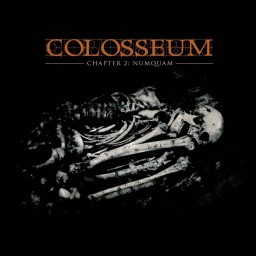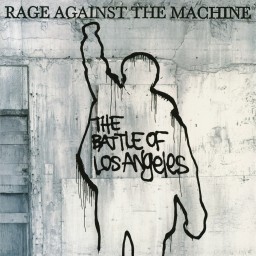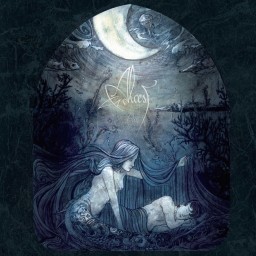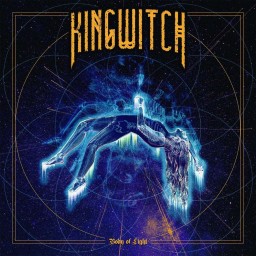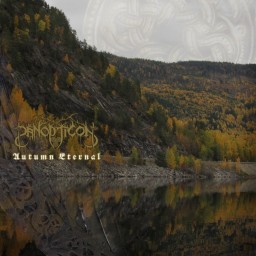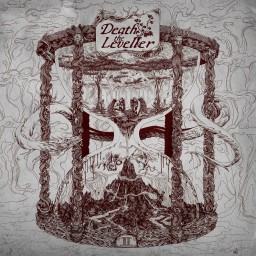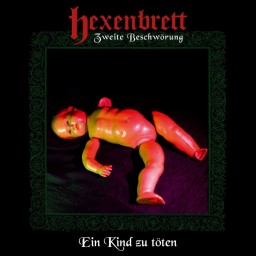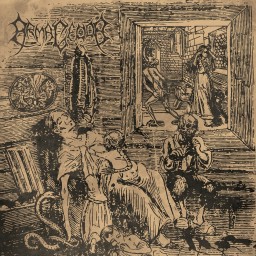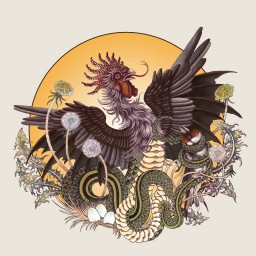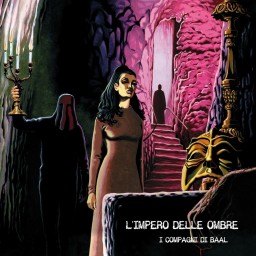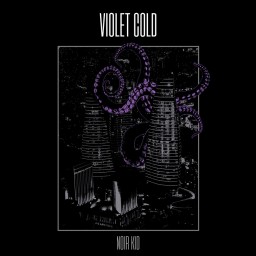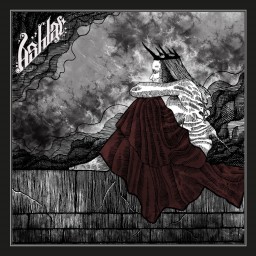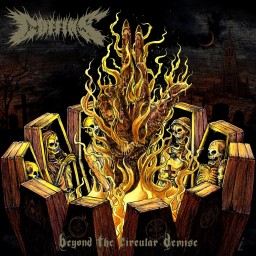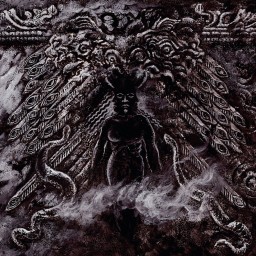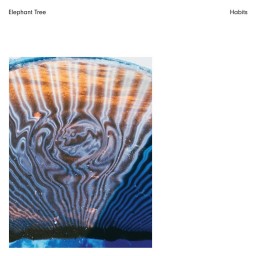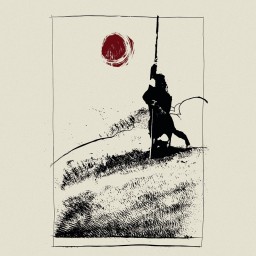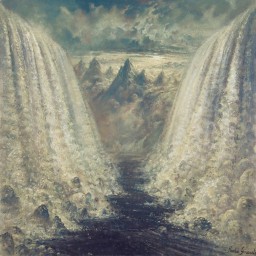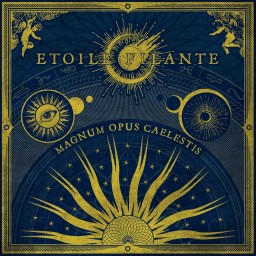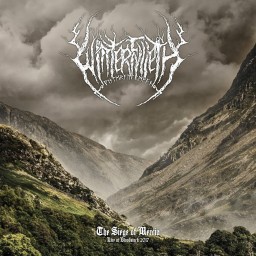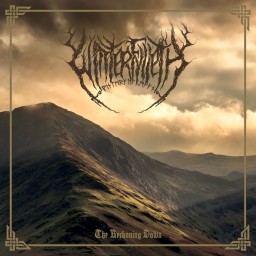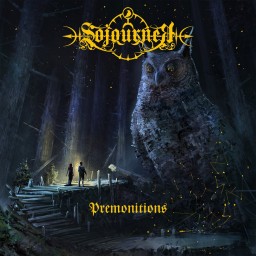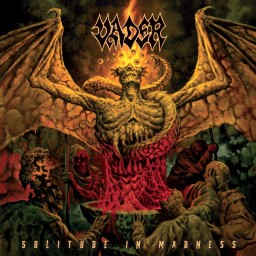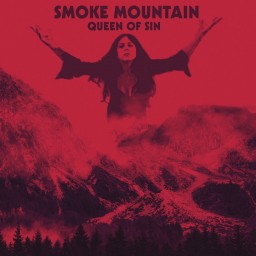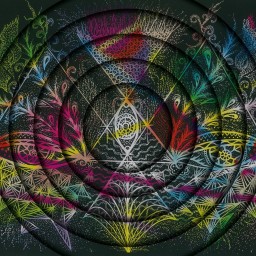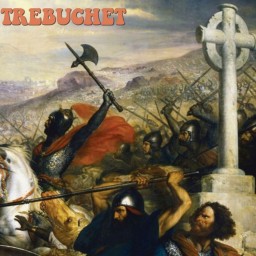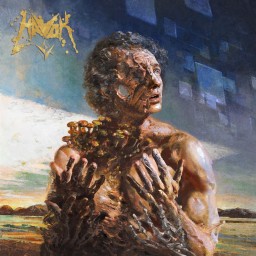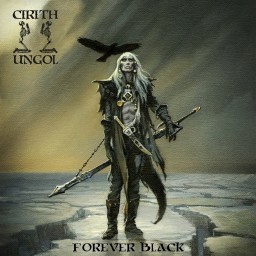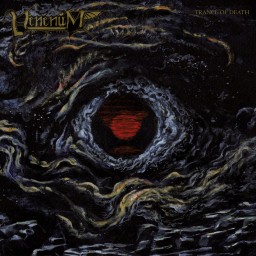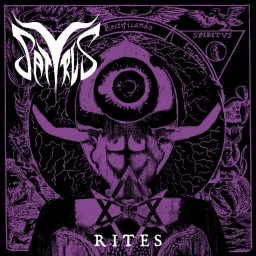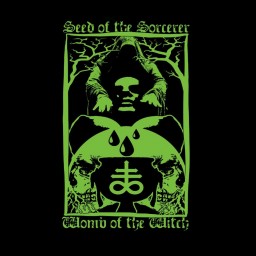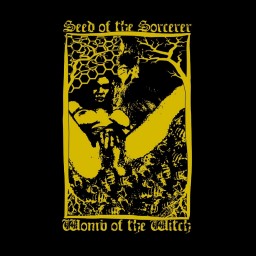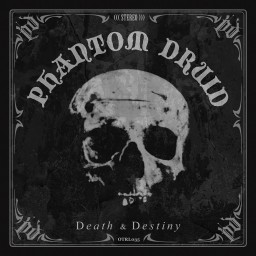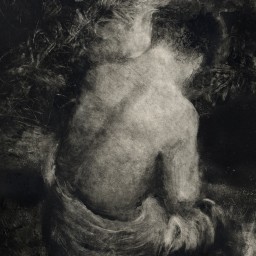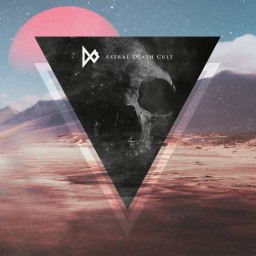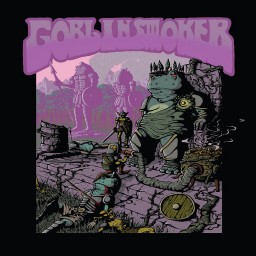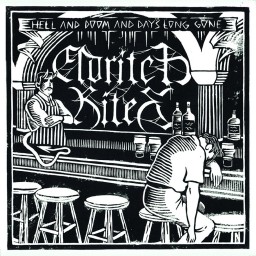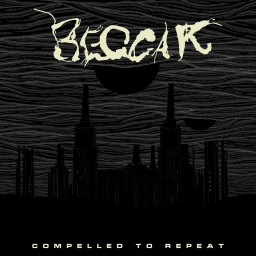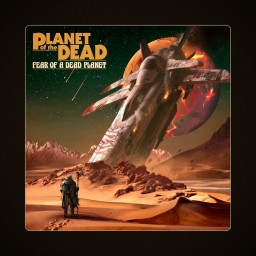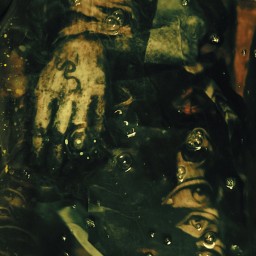Sonny's Reviews
Colosseum were formed in 2006 by Juhani Palomäki and Janne Rämö, both members of Finnish doom outfit Yearning, in order to explore doom's slowest and most monolithic sub-genre, Funeral Doom. Sadly, the band's career was cut short in 2010 after three brilliant albums when Juhani Palomäki tragically committed suicide at just age 32.
This album is a gorgeous testament to the man's art, an amazing album that is as close to funeral doom perfection as it is reasonable to expect, in my opinion. The atmosphere created is one of immense majesty, overlaid by a mournful sombreness made more poignant by the eventual fate of the band's driving force. Feels like walking through a long-abandoned and ancient, yet still impressive, city such as the one featured in Lovecraft's At the Mountains of Madness or the ruins on the sacred island of Delos in Greece. A huge weight of history and accomplishment forgotten and dimmed by the passage of time, its previous might and majesty now only remembered deep within the stone wrought by masons and sculptors long-gone.
The riffs are heaving and slow as you would expect, albeit certainly not the slowest tempo in funeral doom and the keys add a substantial layer to the atmosphere without swamping the sound at all. A number of guest musicians contribute classical instruments such as violin, cello, flute and trumpet for an even richer and more deeply mournful atmosphere. For me though, it is Juhani Palomäki's voice that really sets Colosseum apart, I absolutely love the timbre of his vocals, that deep, rasping growl that shakes you to your core is one of the most doom metal voices ever caught on record.
This album does seem to be the least well-liked of Colosseum's three full-lengths and I'm sorry for being so out of step, but this is one of my all-time favourites being both immaculately heavy and yet still remaining accessible due to its generally shorter and relatively melodic songs. These Finns are worthy of standing alongside funeral doom's most elite acts and I wouldn't hesitate to recommend any of their albums to all fans of the sub-genre.
Genres: Doom Metal
Format: Album
Year: 2009
I first crossed paths with RATM after catching the Freedom video on MTV and it's exposure of the injustices against Native Americans as personified in the heinous miscarriage of justice against Leonard Peltier (shit, some things never change...) Anyway the video had such an effect on my subconscious that when I saw this in my local CD store I grabbed it without thinking. I don't much like rap, apart from the odd album like Straight Outta Compton and It Takes a Nation of Millions so I've never given it much ear time and rap rock like the Red Hot Chilli Peppers leaves me cold, so this was a bit outside my comfort zone.
But, hell, this is one great record - angry and intense, but not in a misdirected "hit out at everyone" kind of way, but in an invigorating, energetic and focussed tirade against those who deserve it. I can't in all honesty say if I would dig this to the same degree without the political message, but I think the music is strong enough in it's own right to command respect. Testify, Calm Like a Bomb, Sleep Now in the Fire are all stone-cold classics as far as I'm concerned and the lyrical content elevates them even higher. This album is every bit as relevant today as when it was released over twenty years ago and that is a hell of a testament to it's passion and power.
Genres: Alternative Metal
Format: Album
Year: 1999
I took a shedload of mushrooms once and had a trip where I was soaring up among the clouds and I could see what looked like the whole world laid out below me. There was this giant tree that towered above everything else and it said to me "everything will be OK" and you know what, it was. The first part of Écailles de lune strongly reminds me of that as if that moment of hope was put into music and if that was all I got out of this, then that would be enough for me. Luckily, the second part of Écailles de lune is even better than the first and is my favourite track on the album, veering from frosty atmo-black to dreamy shoegaze effortlessly and seamlessly, both parts combining for a nineteen-minute epic of gorgeous music.
Side two kicks off with Percées de lumière, which is pretty solid and may be the most black metal track on the album. This is followed by a short and fairly pointless ambient piece before Solar Song comes floating in on a fluffy white cloud, shining it's rays of hope down on all below. The album closes with Sur l'océan couleur de fer, a dreamy piece that feels like floating away to a restful doze on a sunny hillside.
Some albums have a perfect time and mood and listening to this on a Sunday morning in early June just feels so right. It used to be Souvenirs d'un autre monde, but I think this has now taken over as my favourite Alcest album. Neige showing other, more ham-fisted exponents of blackgaze, exactly how delicately the genre should be approached.
Genres: Black Metal Post-Metal
Format: Album
Year: 2010
Edinburgh's King Witch have unleashed a bit of a monster with this, their second album. Released two years on from their well-received debut, Under the Mountain, the band have really upped the ante. Body of Light clocks in at a nudge over an hour, but as well as the overall length, the individual tracks are longer and each has expanded to fill all the available space afforded to them. This expanded format really suits the band's epic doom and the extended runtime allows the tracks to resolve themselves more satisfyingly. There is a nice variation in pacing throughout the album, whether it's kicking our asses with killer heavy metal as on the title track opener or Witches Mark or crushing us mercilessly with huge doom riffing as on Of Rock and Stone or Beyond the Black Gate, it does it with a style not all bands have the chops to be capable of.
I guess the band's most obvious feature is Laura Donnelly's amazing vocals, easily one of the most powerful female singers in metal, much in the vein of Benedictum's Veronica Freeman, but that is most definitely not the only selling point with this band. Jamie Gilchrist's guitar work is also outstanding, whether he's shredding a solo or crunching your bones with the force of his riffing, it makes for a powerful twin attack when unleashed alongside Laura's singing. The rhythm section are reliable, strong and on-point and the production is crystal clear, allowing every crunching riff or cymbal crash to be heard distinctly.
An impressive and highly recommended release for any lovers of epic doom or classic metal everywhere.
Genres: Doom Metal
Format: Album
Year: 2020
This was (and still is to some extent) a controversial record upon it's release as debate raged about whether it was even a metal album (which it is), let alone a black metal album (which it may or may not be), exacerbated I think by the "blasphemous" pink cover which couldn't be any further from the black and white monochrome aesthetic of BM (unless it was a rainbow, I suppose).
Blackgaze as a genre is a divisive issue in black metal circles and I can see why many adherents to BM orthodoxy would take against it, particularly as, generally, it has more in common with post-metal bands like Kauan rather than Mayhem, Darkthrone and even (early) Ulver. For me it's a genre who's releases I tend not to pre-judge before hearing (I know we shouldn't with anything, but come on, seriously, who never goes into an album without certain expectations?) The reason is that there are albums under this umbrella that I really like and many that I really don't, so I'm never quite sure which I'm gonna get. For me, this is one of the former, as it has more than enough of an atmospheric black metal influence to satisfy. The songs are airy and expansive, relying on repetition as do most atmo-black releases, along with the pummelling drums, tremolo picking and down-mixed shrieking vocals common to the genre. The post-metal aspect of the record, particularly the slower sections, add a certain melancholy air that, when combined with the faintly disturbing lyrical subject matter coming across as something akin to the internal monologue of a potential serial killer, produce an unsettling effect on the listener.
It's no great surprise that a band that could shake an, albeit small, corner of the musical world like this, hails from San Francisco, with it's history of being a prime mover in both the psychedelic and thrash metal movements, both of which were pretty big revolutions in their particular areas. That openness to new ideas and concepts are integral to Sunbather's success I believe, allowing Deafheaven to forge something original from what is essentially a very conservative genre, the importance of which shouldn't be understated, This is because, despite the lyrics, the BM blasting and the occasional hint of wistfulness, the overarching sound of Sunbather feels very positive (well it does to me anyway) and that is anathema to a lot of the black metal community. So of course the kvltists will scream that this has sold black metal out, but let's face it, they're always pissed off anyway, so that's kind of irrelevant. You really need to go into this without any preconceptions to get the most out of it. There may actually still be too much BM in this to appeal to many outside of the usual blackgaze fanbase and not enough for the BM hardcore, but despite this, for those willing to take it for what it is, there is a lot to like here.
Genres: Black Metal Post-Metal
Format: Album
Year: 2013
I have no religious affiliation and I don't believe in the occult. If I can't see it or at least have it explained using logic and rational argument then I tend not to put too much store in it. So saying, black metal's themes of satanism and the occult are merely thematic devices to my mind and, besides a couple of exceptions such as Ihsahn and Ghaal, the majority of exponents of black metal feel the same way. I put no more store in these themes than in fantasy tales of wizards and goblins. Of more concern, BM can sometimes be used as a means of expressing some unpleasant political viewpoints and promoting and almost celebrating self-destructive behaviour. However, I have no time for NSBM and DSBM doesn't much interest me, apart from a couple of noteworthy releases.
Anyway, to get to the point, Austin Lunn, aka Panopticon, is a far more positive force within black metal circles than is often the case and his well-publicised leftist views are a bit of an anomaly (at least publicly) amongst black metal musicians. Panopticon plays atmospheric black metal with folk elements, but where Austin sets himself apart is that the folk elements he employs are gleaned from Americana, particularly bluegrass, rather than the more usual European folk music tradition. He is a committed outdoorsman so the themes of nature in all its guises is predominant in his musical themes. Where his experience differs from the majority of BM musicians, he also spent a few years working in social services where he gained an understanding and appreciation of the hardship some people face on a daily basis, so as I'm sure you can appreciate, his is a rare and original voice and viewpoint working within his chosen musical genre. However, don't be deceived into thinking that his views make him uncommitted as a black metal musician as even a brief exposure to his music will reassure you that he is, in fact, the real deal, not in the satan-worshipping, misanthropic sense, but in the returning to nature, respecting the past, uncompromising outsider sense.
So to Autumn Eternal, my second-favourite Panopticon album after Kentucky. Beginning with a gentle piece of bluegrass-inspired americana, Tamarack's Gold Returns, you may be lulled into a heavy-lidded sleepiness that leaves you unprepared for the sweeping majesty of Into the North Woods as it kicks in with its busy drumming, post-metal inflected guitar and Austin's distant-sounding shrieks. As you take this in it soon becomes clear that this is a different kind of black metal. I'm sure you're thinking "Hmm.. black metal with post-metal means blackgaze", but this both hits harder and expresses more grandeur than any blackgaze I've ever heard. In fact this really isn't any kind of -gaze at all, being more direct and focussed than the haziness and absence that term implies, being very much "present". After the title track comes one of my favourites, Oaks Ablaze, which sets off in a blistering wall of sound with a powerful thumping melody before hitting a still space at around the halfway mark of its eight minutes where it pauses for breath before launching into a pummelling crescendo. Following track Sleep to the Sound of the Waves Crashing follows a similar structure, where the quiet middle section is, in fact, like falling asleep to the sound of softly crashing waves, before chiming, bell-like notes signal a hurtling climax to the track. In fact this structural device of soaring, expansive songs that hit an eye-of-the-storm moment of calm that each expresses differently as a counterpoint to the more "bombastic" sections is prevalent throughout the whole album and binds it into a cohesive whole.
This is obviously an album made by a person comfortable with where he is musically and confident in his ability to express himself through that music. Professional sometimes sounds like damning with faint praise, but A.L. is a consummate professional and an absolute master of his trade. In a genre that has more than its fair share of average musicians, poor songwriters and reprehensible characters Panopticon can stand proudly, head held high, as a true class act.
Genres: Black Metal
Format: Album
Year: 2015
Ireland's Mael Mórdha are not a band I have been particularly well acquainted with. The only album of their's I've listened to much being 2013's Damned When Dead which wasn't bad, but didn't really inspire me to check out the rest of their back catalogue. So when I saw that the instrumental core of the band were forming a new doom outfit after placing MM on hiatus, my reaction was pretty much "[shrug] so what?!" Well more fool me, because Death the Leveller are superb and exactly the type of doom band I dig most. They play the kind of epic doom metal that pays enormous homage to the classic heavy metal bands of days of yore that Solstice have made their own since New Dark Age twenty-odd years ago.
This is ostensibly their debut album as the self-titled release is officially an EP despite being 38 minutes long (only a couple of minutes shorter than this), but that is neither here nor there. In common with that first release, this comprises four tracks hovering somewhere around the 10-minute mark - a perfect length that allows the tracks to settle in and weave their magic whilst feeling neither over-long nor underdeveloped. The bands chief currency are huge, booming riffs that are expansive and doom-laden as if, like a musical Nostradamus, they presage the coming of some all-consuming disaster, either on a personal level or in a wider sense. Vocals are provided by Denis Dowling who's previous bands include little-known Irish tech-thrashers Cursed Earth. Denis' vocals are strong, yet still emotionally charged, performing a brilliant balancing act between the power of a Morris Ingram combined with Patrick Walker's ability to convey real emotional fragility (check out "So They May Face The Rising Sun" for an example of what I'm getting at). I find it difficult to believe that a singer this good has not become more well known in metal circles.
Shane Cahill's strong drumming carries the songs forward and maintains the momentum while Dave Murphy's bass backs up the guitar riffing to add extra depth and power to the overall sound. All in all this is a band that has obviously honed their songwriting and technical skills and have found it easy to gel from their time together in Mael Mordha. Couple this with the addition of such an accomplished vocalist as Dowling and you have one hell of a doom metal band. I'm impressed and believe me, I am one cynical, jaded bastard nowadays so that's saying something!
Genres: Doom Metal
Format: Album
Year: 2020
Mysterious Germans Hexenbrett unleash their debut full-length album a year on from the Erste Beschwörung EP, a release that caused a minor splash in black metal circles back in January last year. If you read the blurb on the Bandcamp site then you would be forgiven for expecting an album that completely breaks the black metal mold which, to be honest, is a bit hyperbolic. What it does do however, is heavily raid the Darkthrone back catalogue and their penchant for marrying black metal and traditional heavy metal and diverts it into an exhilharating side street that runs parallel to the more mainstream world of black metal. Weirdly, the track titles are in a number of languages - German, Czech, Italian, French and Spanish, but most translate to a title you would expect from Glen Danzig or King Diamond - The Tomb Of The Living Dead, Corpse Burner and Through Seven Doors To Hell.
It's an enjoyable album that doesn't feel as po-faced as a lot of black metal and would probably be great for a midnight party in the local churchyard.
Genres: Black Metal Heavy Metal
Format: Album
Year: 2020
Armagedda have always revolved around the core duo of guitarist/vocalist Graav, mainman of solo project LIK and bassist/guitarist Andreas Petterson, vocalist of Stilla. Beginning life as a trio named Volkermord in 1999, they released a twenty minute demo before a permanent name change in 2000. Despite a bit of chopping and changing of the line up, the duo released a number of EPs and splits and three albums before calling it a day in 2004. Fifteen years later they released a couple of digital singles via Nordvis and here in 2020 at the height of Coronageddon, they are properly back with a full-length album, released on digital and CD, again by Nordvis.
Svindeldjup Ättestup is medium-paced black metal with a real old-school vibe, somewhat unsurprisingly for a Swedish band that dates back to the 1990s. Instead of an all-out, chaotic blastathon there are actually some pretty good tunes here, such as Ond Spiritism. A couple of tracks are unusually slow (for black metal) and although I would hesitate to tag them as doom metal they are certainly of a tempo more in keeping with doom. There is still a frosty and hateful vibe perpetrating the album and believe me when the duo let loose with the blasting, it rips.
All in all a decent comeback album and one that still feels relevant despite the time elapsed since their previous release. I'd give it 3.75 / 5.00.
Genres: Black Metal
Format: Album
Year: 2020
Brume's first EP Donkey, released in 2015, was much lauded by fans of female-fronted doom metal, so this follow-up, the band's debut full-length release was much anticipated. Thankfully Rooster built on that early promise and didn't disappoint the fan base the band had built up during the intervening two years.
The album gets right down to business and opener Grit and Pearls is a ten-minute track that begins with some slow and heavy riffing overlaid by Susan McMullan's strong, yet light, vocal touch, increasing in tempo as it builds to a climax and setting a high standard for the rest of the album. It continues in similar vein for most of it's runtime, inviting the accusation of a lack of variety, I suppose, although someone who would make such a complaint is probably not much of a fan of doom metal anyway!
The album does hit a softer patch towards the end of Call the Serpent's Bluff which then runs into the acoustic ballad Welter that sounds more like Tori Amos or Patti Smith than Pallbearer and is a nice, airy interlude to relieve the crushing weight of the music up to that point. This, in turn, leads into closing epic, Tradewind, the album's longest track, which also begins gently before once more dropping the doom.
This is overall an an album of strong riffing, a powerful and well-defined rhythm section and nicely contrasting female vocals. There's no heavy metal histrionics, there isn't even much of a solo until Tradewinds and the album exhibits a satisfying discipline in it's songwriting, being absolutely a straight-up doom metal record and is completely free of any "witchy" occult referencing psychedelic touches that is so common amongst female-fronted doom acts. One for the fans of "true doom metal".
Genres: Doom Metal
Format: Album
Year: 2017
L'Impero Delle Ombre (The Empire of the Shadows) were formed in Puglia in 1995 and have been based around brothers Giovanni Cardellino (vocals) and Andrea Cardellino (guitar) since their inception. Hardly a prolific band, their debut album wasn't released until 2004 and this, their second (and currently final) album was released after another 7 year wait. Fortunately it's almost good enough to be worth it. This is an album of traditional doom metal with a real 1970s vibe and some good, old-fashioned, Italian quirkiness thrown in for good measure that anyone familiar with Paul Chain's work will immediately recognize. The brilliant cover art suggests a 70s horror film, as does the scratchy intro track, opening the album with the impression of entering an old-fashioned cinema, all over-stuffed seats and velvet curtains across the screen.
The riffs are heavily influenced by eighties NWOBHM, the aforementioned Mr. Paul Chain and seventies hard rock, particularly Deep Purple, at several points sounding like a live jam during Highway Star, as on Divoratori della Notte. There's plenty of variation, to the point of progginess, particularly in the deployment of a veritable arsenal of keyboards from Oleg Smirnoff whose Hammond organ and Moog flourishes are awesome - seriously, check out the end of L'Oscura Persecuzione! The songs are quite catchy and are certainly memorable enough for you to suddenly find yourself humming the melodies long after the album has ended. It's almost as if this album has tried to capture my entire experience as a rock and metal fan from the seventies to the present in a single album. In fact I would mark this higher if not for Cosmochronos, which I feel doesn't flow right and I could have done without the bonus track cover of Snowblind.
All in all a real hidden gem of Italian progressive doom that I wouldn't hesitate to recommend.
Genres: Doom Metal
Format: Album
Year: 2011
I'm not usually much impressed by a lot of Blackgaze, it being a bit too twee in a lot of cases for my taste, but I was quite a fan of Violet Cold's previous album kOsmik. This.. nah, not so much. It's merging of blackgaze with 90's-style electronica and trance just doesn't click for me. Most unforgiveable is the horrible "helium gas" voice that is employed on a couple of the early tracks that make it sound like some sort of shitty novelty record. The black metal parts are still pretty decent actually, but for me, this album is a huge disappointment and a backward step, following on so close after last year's far superior release. I guess I'm really just an old traditionalist at heart, in which case this was probably never meant for me. As with kOsmik there is an instrumental version available, so I might give that a try at some point to see if it works any better.
Genres: Black Metal
Format: Album
Year: 2020
Ashtar are a husband and wife duo, Marko and Nadine Lehtinen from Basel in Switzerland (although Marko is Finnish), who play an unholy hybrid of doom/black/sludge metal. Five years on from their debut, Ilmasaari, they have finally released this, their second album after moving from local label Czar of Bullets to Eisenwald. Kaikuja is apparently Finnish for "Echoes" which is apt as it's deep, resonant riffing sounds as if echoing from some vast underground chamber.
The album kicks straight in with some righteous, blasting, black metal as opener Aeolus grabs the listener by the throat, it's lyrics of mountain-top winds being classic BM fare, but the track soon morphs into a more sludgy affair as the tempo slows.
Second track, Between Furious Clouds, at 13 minutes is an unrelenting, pounding slab of bass-heavy, monolithic doom telling a tale of a mythical cosmic giant and is where Nadine's violin makes it's first appearance on the album, if only briefly.
The remaining three tracks, Bloodstones, The Closing and (She is) Awakening continue the blackened doom assault, the dense, heaving riffs contrasting with Nadine's caustic blackened shrieks to conjure an ominous and smouldering atmosphere. (She is) Awakening ends with the dissonant cacophony of tortured violin that brings the album to a suitable close.
I was a big fan of debut Ilmasaari and I still feel that that is the better album, albeit marginally, due to it's greater emphasis on the sludge and doom elements with the production sounding better too, but make no mistake, this is a good album if you like the more extreme end of the doom metal world.
Genres: Black Metal Doom Metal
Format: Album
Year: 2020
Rank and foetid death metal that sounds like it has been incarcerated in a deep, dank hole, and covered in rotting corpses for about thirty years. I love the crustiness of their downtuned chugging and the growling, gurgling vocals add an extra layer of filth to their sound. OK, it's not quite as great as 2008's Buried Death, but it's pretty damn close.
Genres: Death Metal
Format: Album
Year: 2019
Deadly Black Doom is Head of the Demon's third album and features six tracks totalling fifty minutes. The Swedes play doom metal that owes a debt to black metal in it's atmosphere and stylings but doesn't really feature any actual BM. What it is is an album full of foreboding and forbidden promises that lure the listener into a sense that they are hearing a ritualistic exhortation to performance of proscribed rites in abandoned crypts by adherents to long-reviled occult teachings. Sinister doom metal that is actually incredibly entertaining and varied with some great hooks and rasping and growled vocals that provides an alternative to the usual occult doom template. If I had to pick a favourite track, I love the drumming on En to Pan, it's uptempo occult vibe is a fantastic example of what the album has to offer.
Genres: Doom Metal
Format: Album
Year: 2020
I've been an admirer of Elephant Tree since their 2014 debut, Theia and already this is my favourite album of theirs. It takes the psychedelic fuzz of early 70s heavy psych and marries it with the downtuned riffs of doom metal for a weighty, yet trippy musical experience. The vocals are more reminiscent of psych-influenced acts, particularly UK neo-psychedelia bands like The Charlatans or Kula Shaker with an ephemeral texture (a technique quite common with female vocalists, but not so much with their male counterparts). The Fall Chorus provides a reflective intermission at around the mid-point with an acoustic track that begins like The Byrds with a bluegrass breakdown. My favourite though has got to be the closing track, Broken Nails, that once again begins gently before the heaving doom riff kicks in as the track begins it's ascent to it's towering climax. I've got a feeling this is going to be a real grower.
Genres: Stoner Metal
Format: Album
Year: 2020
Mourning Beloveth kick us off with their offering I Saw a Dying Child in Your Arms - and it's a real beauty. Mournful and atmospheric with an obvious doom aesthetic, although it is actually a "clean" song apart from the backing vocals during the climax. Stripped down, lacking in either fuzzed-up riffs or growling vocals this is still allowed to build in the manner of all the best doom tracks. Quite a moving track.
Ruins of Beverast's contribution is Silhouettes of Death's Grace, a track that is doomy in it's atmosphere, but is heavily influenced by RoB's early black metal beginnings. It has an overall disconcerting quality to it, as if you can never quite pin it down. The guitars often sound eerily akin to church bells as they chime over the sonorous doom of the backing riff, particularly in the latter half after the midway tempo change when we get a whiff of atmo-black blasting.
An interesting release with two contrasting, yet complementary tracks of unconventional doom metal.
Genres: Doom Metal
Format:
Year: 2020
Italian veterans Forgotten Tomb's tenth album features melodic black metal with a large influence from doom metal in it's riffing and pacing. Also incorporates some post-metal into the structure of the songs for a reasonably modern, if somewhat sterile-sounding effect. Not bad but unlikely to live overlong in the memory.
Genres: Black Metal Doom Metal
Format: Album
Year: 2020
Etoile Filante's black metal is of the cosmic variety. The seamless incorporation of synths adds the spaciness to their sound, imparting an expansiveness that transports the listener's mind's eye on a journey into the heavens and beyond. Fans of Mesarthim will undoubtedly know what to expect as this is very much in that vein.
Genres: Black Metal
Format: Album
Year: 2020
England's quintessential black metal outfit recorded live at the Bloodstock Festival in 2017. Three of the five tracks are from their best album, The Mercian Sphere, so a great choice of material. The performance is solid, the songs are sweeping epics that hark back to the time of Dark Age English legends and thus as a representation of the band's live shows it must go down as a huge success.
Genres: Black Metal
Format: Live
Year: 2019
England's best black metal band return after a four year break since their last black metal release, their folk music itch having been thoroughly scratched with 2018's The Hallowing of Heirdom and their Wolcensmen project.
The Reckoning Dawn begins quite aggressively with a fairly muscular track, Misdeeds of Faith before launching into a fourth part of The Wayfarer which was originally a three-part epic on 2010's Mercian Sphere LP. This referencing back to the earlier release seems to intentionally signpost that the album is a return to the sound of the band's earliest albums and the sweeping, thunderous atmo-black that they built their reputation on. Indeed, it is a great example of the style and is a worthy successor to those early albums... and yet, I can't help but feel a slight tinge of disappointment. Much as I love Winterfylleth's particular style, I was really excited by the direction they went in with side two of 2016's The Dark Hereafter, the almost doom metal pacing of Green Cathedral and the chanted vocals of Led Astray in the Forest Dark so, great though it undoubtedly is, The Reckoning Dawn's return to atmo-black orthodoxy is an ever-so-slight backward step in my opinion. Still, the glass is half full and this is a tremendous album nonetheless.
Genres: Black Metal
Format: Album
Year: 2020
I've really enjoyed Sojourner's output to date. There is something that speaks to me in their sweeping, expansive atmo-black compositions that conjure gorgeous mental pictures of the landscape of the band's home country of New Zealand. They inspire the same feelings inside me as the best of the UK's black metal acts, Saor and Winterfylleth, which is not really surprising as all three are heavily influenced by their respective country's natural surroundings and New Zealand strikes me as very similar to the more remote and unspoiled regions of Britain.
The eight tracks here are long enough to allow the music to breathe and impart their vision of the natural world. The vocals are of the harsh male / ethereal female dichotomy and there is liberal use of keyboards throughout to add layers to the lush atmosphere.
I've marked this down compared to the previous two albums because it feels a little too aggressive this time around and I feel this increased aggression is less effective in it's portrayal of the band's aesthetic. Still a good slab of atmospheric black metal though for those who enjoy the more folksy side of the genre.
Genres: Black Metal
Format: Album
Year: 2020
They may not be the hippest band in the death metal canon, but sod that, I happen to like Vader! At this point in their career they have a tried and tested formula that has stood the ravages of time. Thrashy death metal that pays respect to their forebears such as Slayer, Death and Morbid Angel, doesn't break any rules, but still kicks ass. The one thing, for me, that has always set Vader apart is the vocals. I just really dig the timbre of Peter's vocals and have to admit that he is my favourite death metal vocalist, so I've always looked upon new Vader releases favourably. All the same, this is solid stuff with some damn fine Slayer-esque solos to boot so hopefully it will appeal to more metalheads than just me.
Genres: Death Metal
Format: Album
Year: 2020
Another album of orthodox doom metal that eschews all the trappings of modern metal music and returns to a stripped-down, lo-fi approach. On Queen of Sin the riff is king as they completely overpower every other aspect of the sound. The vocals and drums are distant-sounding and echoing and seem to be heard through the plodding, stentorian riffs rather than over them. The Floridian trio have truly taken their sound back to doom metal basics with an album that may only appeal to genuine doom devotees. Weirdly, the promo track is for the song Deathproof which isn't really representative of the rest of the album and sounds like an L7 track.
Genres: Doom Metal
Format: Album
Year: 2020
The Osaka "Witch Doom" duo return with another chunk of hyper-fuzzed, lo-fi doom metal that carries more than a hint of punk and riot grrrl attitude with it's middle finger to metal convention. It runs Sabbath and Electric Wizard riffing through a hardcore punk filter, then ups the fuzz and lays on a variety of vocal stylings from gently melodic to shrieking roars for a refreshingly uncompromising sound all their own. Both cataclysmic and orgasmic, this is as much a sensation as a sound!
Genres: Doom Metal Stoner Metal
Format: Album
Year: 2020
Dave Gilbert, the man behind Trebuchet, is one half of the Norfolk doom duo Dark Matter and is a man of impressive musical ambitions. Although resources are limited, Dave's compositions are wide-sweeping and encompass genres from doom metal, classic hard rock, old-school heavy metal and progressive rock. For this project Dave has enlisted the help of Shayne Joseph from Aussie doom outfit Eldritch Rites on guitar and backing vocals and to help with songwriting.
As with his Dark Matter releases, the vocals are the weak point and although they aren't terrible they are a bit reedy. The production is also a bit on the light side, but the riffs are solid and the lead work is pretty damn good too.
Most of the album is based around Reverend Bizarre style doom metal, but also strays into hard and progressive rock territory, particularly on The Devil's Den.
Doom devotees who need a dose of classic doom metal and admire a band with a vision who give it their all should definitely check this out.
Genres: Doom Metal
Format: Album
Year: 2020
An album of modern thrash that harks back to those 1980's heady days of Bay Area supremacy. However, this isn't merely some dumb nostalgia trip. The lyrical themes are contemporary and relevant (albeit not particularly deep) and, particularly as the album proceeds, there is a more progressive feel to some of the tracks (Panpsychism and Don't Do It for example). Havok are one of the better of the modern U.S. thrash bands and prove it once more here. They don't break the mould of 80s thrashing, but they do push it just enough to stamp their own identity onto their sound. Fans of Bay Area veterans like Exodus and Testament should find plenty to get into here.
Genres: Thrash Metal
Format: Album
Year: 2020
After a short intro track, Cirith Ungol's comeback after nineteen years since Paradise Lost was released, kicks off with a bang and a slice of hi-octane speed metal, Legions Arise, which acts like a slap in the face to make sure they have our attention before we get into the meat of the album. The rest of the album is of a slower tempo, more in keeping with the trad metal / doom sound the band were once well-known for. Tim Baker's vocals are still the main sticking point for me, but are probably less of a problem on this album than any of their previous releases.
Overall an enjoyably epic, lovingly ridiculous album of good old traditional metal that doesn't sully the band's legacy at all, unlike so many who return after a lengthy gap between releases. Great to have a new Elric album cover too!
Genres: Heavy Metal
Format: Album
Year: 2020
I'm not a huge afficionado of modern death metal and it's seeming obsession with brutality and violence, other than a few long-established acts like Nile, Vader and Behemoth. My preference was always for the very early, looser death and death doom sound and later Opeth's accomplished, progressive take on the genre. Recently, however, my curiosity has been piqued by albums like Blood Incantation's Hidden History of the Human Race and their incorporation of other genres like psychedelia, space rock, and progressive metal, much in the way that Oranssi Pazuzu have done with black metal. In searching out similarly ambitious death metal, I found myself here with Venenum's 2017 debut (and currently sole) full-length.
The album begins in novel style with a cello(?) and piano intro track, which is not, generally speaking, the way death metal bands set out their stall, before launching headlong into Merging Nebular Drapes which rattles along at a right old pace and allows the band to demonstrate their technical proficiency yet retains a certain old-school looseness without becoming excessively tight and narcissistic, unlike so many tech-death acts.
The Nature of the Ground's blackened death fires off the albums most brutal sounding salvo before it grinds to a sudden halt and an initially slow, but ever-quickening, guitar call and response lead into a renewing of the aural assault.
Cold Threat is a towering, threatening beast that begins with a slow riff and wailing guitar work that then transcends into some righteous Death-worship.
Then we come to the three-part epic, the title track, which spans the entirety of side two of the vinyl release and is what elevates the album to classic status. Part one, Reflections, continues the album in similar vein to side one's fairly aggressive prog-death, albeit with a greater frequency of time changes. Part two Metanoia Journey, an instrumental section, is more psych-influenced, a bit like a death metal Pink Floyd, the guitar work sounding heavily influenced by Dave Gilmour's work on tracks like Echoes or Comfortably Numb and keyboards to match. The album closes with the fourteen-minute climax, Part III: There Are Other Worlds..., a track that is one moment flying high with soaring guitar leads and the next plummeting headlong with a vicious vocal section, all the while forging ahead to the inevitable all-out controlled chaos of the album's climactic end.
For my money, this is one of the greatest examples of 21st century death metal and, along with Blood Incantation's aforementioned Hidden History of the Human Race, the reason I'm getting enthusiastic about death metal once again.
Genres: Death Metal Progressive Metal
Format: Album
Year: 2017
Sicilians Satyrus serve us up a satisfyingly heavy dish of meat and potatoes doom metal. Will probably only satisfy the dietary requirements of doom metal addicts as there is nothing new to hear here, but it is pretty heavy and properly doom-laden, as it should be. The production could be better, but isn't so bad that it distracts and the vocals are a bit creaky occasionally, but it's honest and unpretentious, so it's a thumbs-up from me.
Genres: Doom Metal
Format: Album
Year: 2020
A short, raw, almost demo quality ep from these Coloradan death doom merchants. The rawness of the production makes it sound angrier and more menacing than maybe a less lo-fi approach would have done and this is to it's credit in my opinion.
Genres: Doom Metal
Format: EP
Year: 2019
A three-track EP of uncompromising death doom with black metal trappings that is obviously made to please no one except the band. This is not to imply that the EP is unlistenable, but if you're sum-total knowledge of death doom comes from Katatonia and My Dying Bride then this may not be for you. More suitable for those who worship at the altar of Winter, this is not nice and melodic, but filthy, evil-sounding charnel pit music for those who dig on lo-fi doom metal shorn of distracting gothic trappings.
Genres: Doom Metal
Format: EP
Year: 2020
Phantom Druid is the solo project of Dutchman Tjeerd de Jong of Beyond Belief and Stone in Egypt and Death & Destiny is his first full-length under that flag. Proper old school doom metal in the tradition of Pentagram and Saint Vitus, for a one-man show this is mightily impressive. Huge, perfectly toned riffs and Ozzy-ish vocals add up to a must hear for those who pine for the days of doom metal orthodoxy and bemoan the ever expanding hybridization of modern doom metal.
Genres: Doom Metal
Format: Album
Year: 2020
Aggressive and angry black metal that may be lethal at close range. Incorporates a lot of mathcore influence and, as a consequence, feels a little to restricted for my taste but, hey, the kids seem to like it!
Genres: Black Metal Metalcore
Format: EP
Year: 2020
Dö have taken big strides forwards since their 2016 debut album, Tuho. Firstly on 2017's ep Astral: Death / Birth, which was a kind of precursor to this, their follow-up full-length. It expands on the ep's melding of doom and space rock, making for ever more expansive, yet compelling, compositions. The band are supremely successful in conveying the album's themes - you can almost feel the power of an enormous rocket propelling you onward, as you behold, awestruck, the vastness and majesty of the fiery heavens.
Genres: Doom Metal
Format: Album
Year: 2019
Super-dense sludgy doom that smothers and suffocates with it's cloyingly heavy atmosphere. It's black metal-derived vocals adding a layer of menace, like trying to flee from an unseen, unspeakable terror whilst waist-deep in some forsaken charnel pit. It's only 26 minutes long, but feels much more substantial than that.
Genres: Doom Metal Stoner Metal
Format: EP
Year: 2020
Aussies Eldritch Rites play othodox doom metal with their tongues firmly in their cheeks in the manner of Lamp of Thoth or Lucifer's Fall. Great fun-time doom for those who don't have to take eveything soooo seriously.
Genres: Doom Metal
Format: Album
Year: 2020
The UK's Beggar have released a debut album full of pissed-off and violent sludge metal with some mighty, stonerised riffs and with a singer who seems as furious as if he's just stood on a nail as he shrieks his bleak and contemptuous lyrics at the uncaring cosmos. If you're looking for heavy and angry then you have most definitely come to the right place, my friend.
Genres: Sludge Metal
Format: Album
Year: 2020
Fear of a Dead Planet is the debut release from New Zealand's self-styled "cosmic doom" outfit, Planet of the Dead. Heavy, sludge-drenched stoner doom that draws on classic horror and science fiction for it's lyrical themes. With massive riffs, throbbing bass lines and barked harsh vocals this is piledriver doom that will pummel your ears for it's entire forty minutes runtime. Unfortunately the drums sound a bit dulled, but it's not so bad as to adversely affect the overall sound. Solid.
An album I keep coming back to, so much so that after repeated listens I'd have to say it's better than solid and I've consequently upped my rating to reflect this. If you really fancy a slab of doom that'll give you a bit of a battering then you could do much worse.
Genres: Doom Metal Stoner Metal
Format: Album
Year: 2020
Oranssi Pazuzu follow up the amazing Värähtelijä with this, their latest album and it is indeed a worthy succcessor to that classic. Their stint with the Waste of Space Orchestra project seems to have resulted in ever more diverse influences becoming entwined in their sound, moving them even further away from their black metal origins. In fact, I hear very little black metal on here other than in the vocals. What I do hear is electronica and space rock in hefty doses and the metal that is present owes more to industrial than black metal. The band I keep hearing throughout more than any other though is Hawkwind, particularly of the eighties vintage. The first part of the album's longest track, Uusi Teknokratia, is so reminiscent of Choose Your Masques it's untrue and the driving, wall of sound of the quicker songs married with the electronic elements has Dave Brock's stamp all over it.
Atmospherically, the album is very "cyberpunk dystopia", the soundtrack to a not-so-distant nightmare future envisioned by the likes of William Gibson. Most of the tracks start ominously and build towards an energetic and chaotic climax, conjuring images of marauding androids and flaming attack ships.
This all results in a particularly progressive sounding metal album, in the classic sense, not in the lazy, "desperately-trying-to-sound-like-Dream Theater" sense that many so-called progressive metal bands settle for. The album's several diverse elements are all brought together into a whole that visionaries of yesteryear like Robert Fripp and Peter Hammill would be proud of had they come from a later era of music and been more metal-inclined. Oranssi Pazuzu are cut from a similar cloth and are one of the select few bands in the metal scene who can be considered leaders and not followers.
For now I've got this marked down slightly from Värähtelijä, but this is a great record too and that divergence may yet close as this gets more listens (as it certainly will!)
Genres: Avant-Garde Metal Black Metal Post-Metal
Format: Album
Year: 2020










